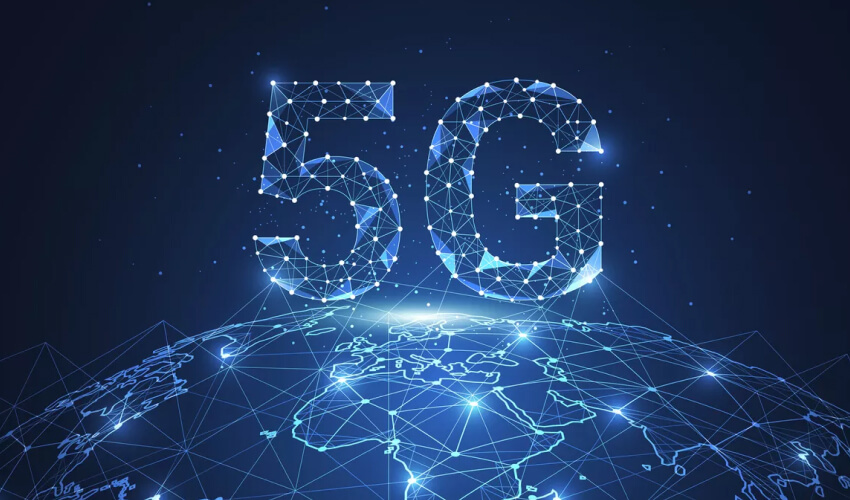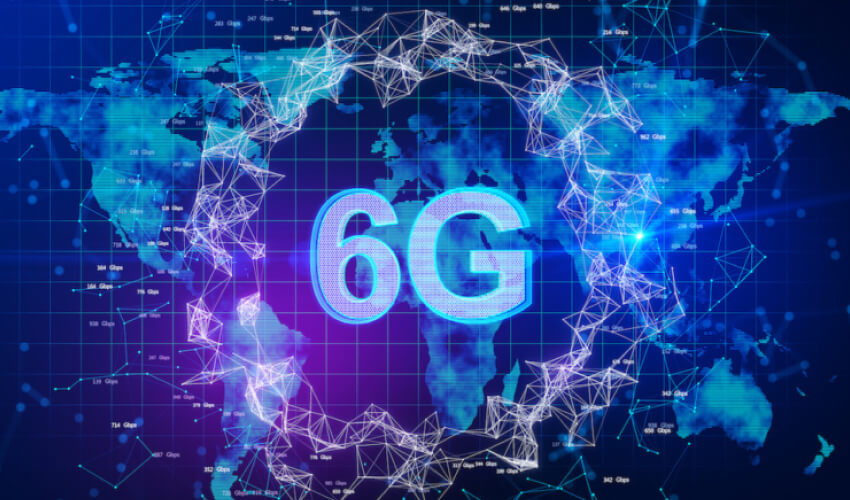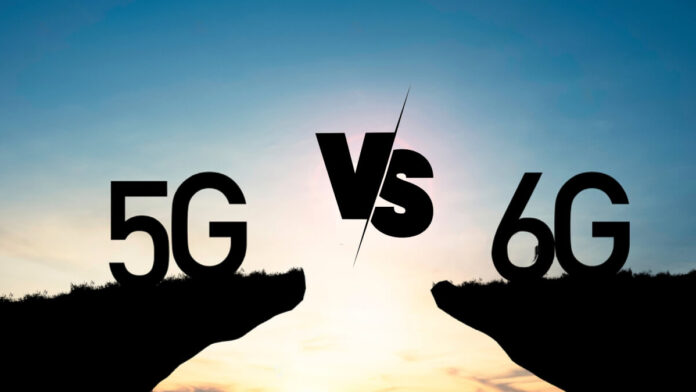The development of wireless technology has been progressing rapidly. The best examples can be the introduction of the 5G and 6G networks. Both of these have brought with them innumerable new facilities for the users and companies alike. These two networks have changed how we communicate with one another.
Now, the question is whether these networks are capable or have slight distinctions.
If you are also thinking the same thing, then you must read this post. This is where the important differences between the Fifth and Sixth generations are going to be discussed.
5G vs. 6G: How Are They Different?
What exactly is 5G?
Certainly, the fifth cellular generation is what would be known as the fifth. It generally supersedes what the world refers to as the fourth, or, the 4G LTE. The fifth generation, which was launched in 2019, is much more advanced than its ancestors, 3G and 4G. Whereas all of the above varied from the generation, the data rates have always been the most significant ones.

Theoretical maximum speed could only be achieved by the fourth generation LTE-Advanced, at 300 megabits per second. And on the other hand, it is the fifth gen that boasts of having a theoretical maximum speed of up to 10 gigabits per second almost 34 times that of what 4G LTE is capable of.
The fifth-generation technology works by using low, mid, or high-band mm waves that range anywhere between 24 GHz and 66 GHz. That is the main reason for the high data transfer speed and much wider bandwidth capacity on the user end.
5 Generation enabled previously inconceivable applications, including automated cars, the Internet of Things, and smart cities. In addition, it also helps in healthcare services. Many medical diagnostic and design tasks include processing large numbers of high-resolution photos and information. Using 5th generation technology, diagnostic imaging data such as MRI or CT scans can be transmitted instantly to any location in a matter of seconds.
It’s not just that; the advent of the fifth generation also had significantly improved gaming experiences. Indeed, the gaming industry has always thrived with the advent of fifth-generation technology. Due to high bandwidth and low latency, numerous game brands have come up with VR games that provide users with a more realistic gaming experience.
What exactly is 6th Gen Network?
The sixth generation of cellular network technology is a successor of the fifth generation technology. This technology is currently under development. However, many wireless communication companies have already started testing sixth gen networks in some areas. It is anticipated that this generation network will be accessible completely by the year 2030.

It’s a no-brainer that it offers speeds that are much quicker than its predecessor. It is said to have a maximum speed of 206.25 gigabits per second (which is, of course, very high compared to its predecessors).
This new technology will operate in higher frequency bands than the fifth gen, ranging from mm waves with a range of 30 to 300 GHz up to radiation with a range of 300 to 3000 GHz. In addition to this, you can expect to get higher coverage and enhanced reliability with this gen as it makes use of a wider range of the spectrum.
The sixth-generation technological advancements are a far more significant revolution. It might usher in a brand-new era characterized by automated, intelligence-infused communities. It will provide unprecedented speeds and low latency, enabling its usage in revolutionary applications such as driverless cars, smart homes, and healthcare solutions by both individuals and corporations.
Undoubtedly, the advent of the future mobile network is going to make significant improvements in people’s lives. It will result in higher living standards and enhanced environmental monitoring. In addition to this, it will bring virtual healthcare to an entirely new level.
Healthcare facilities would be able to serve their patients better and more quickly with the help of AR/VR/AI/holographic telepresence.
All in all, the sixth gen technology will usher in a brand new era for the entire globe.
Let’s now see how the 6th generation technology is better than the 5th generation network. Here we go…
Significant Differences Between Fifth Gen and Sixth Gen Networks
Although both 5G and 6G have improvements over their predecessors, there are several distinctions between 5th and 6th networks, which are as follows:
Bandwidth
6G network provides greater bandwidth capacity than 5G networks. This is because the sixth generation network employs higher frequency bands. This means that the sixth generation can make it possible for a greater number of people to access the network at the same time, in addition to supporting more data-intensive applications like virtual reality and live video streaming.
Speed
Both 5G and 6G technology offer speeds that are faster than 4G LTE; however, the 6th generation takes this to an all-new level. It is anticipated that 6G would be able to give theoretical maximum speeds that are up to 100 times faster than the 5G network. 6G network utilizes higher frequency bands on the wireless spectrum. The revolutionary speed capabilities that 6G is rumored to bring will reportedly have far-reaching repercussions for a variety of different businesses.
Interconnected Ecosystem
The projected ultra-rapid speed would make it possible to establish instantaneous connections between any digital device, including smartphones, wearable devices, etc. It will enable the creation of an entirely interconnected ecosystem. In addition, it will make it easier to implement smart manufacturing units, and robots, thereby facilitating the beginning of the fourth industrial revolution.
Aside from that, the 6G technology is said to bring significant improvements in healthcare systems as well. It is going to promote telesurgery and telehealth. Also, the retail and financial sectors are anticipated to have a profound impact.
Latency
Latency is the amount of time, measured in milliseconds, that it takes for a signal to move from one location to another across a network connection. Ever since the advent of the 5G network, users have experienced amazingly low lag time. However, the response time experienced by users of 6G networks is even shorter than that of 5G networks. This is because 6G networks utilize higher frequency bands on the wireless spectrum, which enables faster transmission times between devices that are connected to a network.
Security
Both 5th Gen and 6th Gen networks pose substantial dangers to data privacy and security. However, the 6G networks have the potential to present an even larger risk than 5G networks. This is because sixth generation networks will have a wider attack surface than 5G networks, as well as more complicated use cases, leading to new security flaws. In addition, the greater reliance on open-source software for 6G networks may present additional opportunities for cyberattacks.
In such as situation, businesses need to take measures to bolster their security protocols. They will need to stay updated and implement safeguards against potentially harmful parties, such as encryption, authentication, and so on.
Experience
Introducing new technologies to the public always has the goal of bettering the user experience. 5G technology has improved the user experience across different industries. Users can benefit greatly from low-latency connections, such as 6G. The impact of the 6G network on Internet of Things (IoT) devices like smart household appliances and connected vehicles is obvious.
This is because the 6G network can handle more data at once without sacrificing speed or consistency. Users can expect to have an even more streamlined experience, with the added benefit of being able to process more information all at once.
Wrapping it up…
Here we conclude our fifth and sixth network. The differences between the 5G network and the 6G network will help you understand them much better. There is no doubt that the Post-5G Network technology will be superior to its predecessors in terms of speed, latency, and other areas.
The 6th Gen Network is sure to have far-reaching effects on almost every sector, including retail, healthcare, telecommunications, etc. It can go beyond 5 G’s technical restrictions and usher in unprecedented improvements in a variety of connectivity domains. With the arrival of 6G technology, automation will undoubtedly play a central role in streamlining and bettering people’s daily lives.


